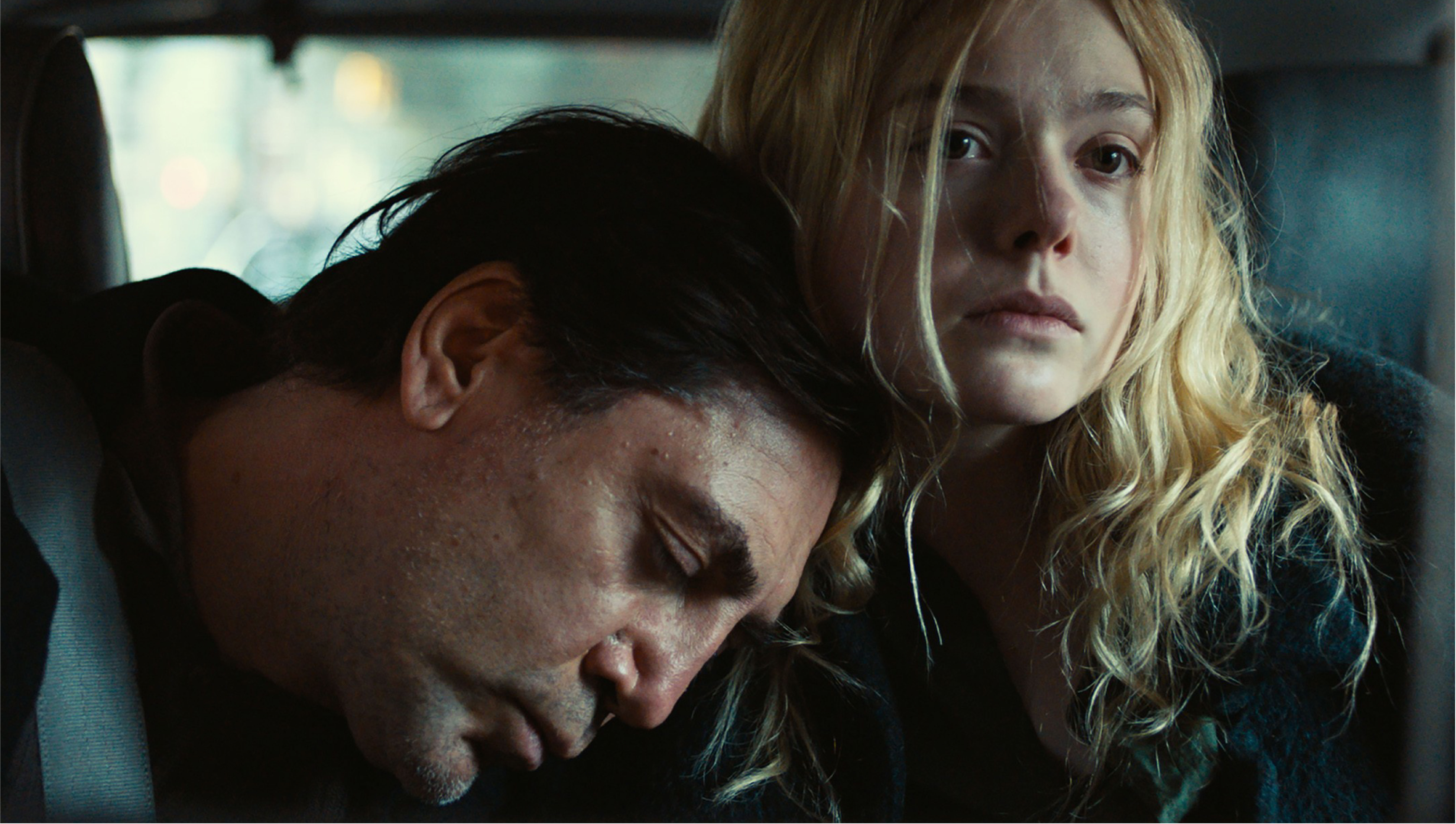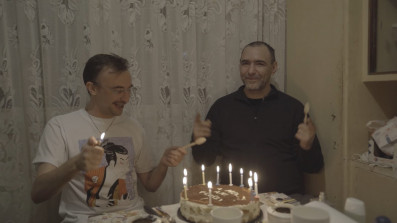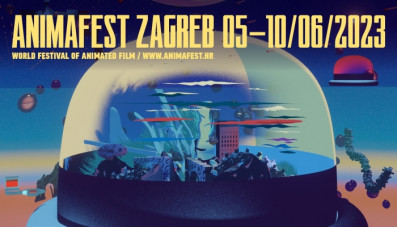
BERLINALE SPECIAL DAY 7: "Berlin Alexanderplatz", "The Roads not Taken" and "Dau Natasha" are the strongest entires in competition so far!
Seems like Golden Bear winner had its premiere!
Three entries of day 7 Berlinale competition programme seem like the true competitors for this year's Golden Bear award. Burhan Qurbani brings much-needed freshness into German film culture with Berlin Alexanderplatz, DAU. Natasha by Ilya Khrzhanovskiy is the first piece of a puzzle in one of the most ambitious film projects in the history of film and Sally Potter gets deeply political and emotional with her Roads not Taken.
A red glow bends over the turbulent sea as two voices shout to each other in the opening moments of the Burhan Qurbani's latest German mafia life epic Berlin Alexanderplatz. It is a splendid modern-day adaptation of Alfred Döblin 1929 novel of the same name, that manages to showcase an everlasting inner moral battle of an individual that just seeks a bit more than just a piece of bread with butter and roof over its head.
Only one of two voices, from the opening manages to survive the storm. His name is Francis and rescued from the disgrace of the water and the hard life of the far country from which he fled, he promises himself and God that from that moment on he will do good. Soon an imigrant from Bissau will find out that this is much more difficult than he could ever imagine...
Francis' journey of doing good and living in Berlin begins in an abandoned building that is a gathering place for a series of a lost souls that hope for a better tomorrow. Since hard physical work in the grey zone is not something that lasts, every opportunity that knocks on door, however dark it may seem, to many immigrants a better solution. This is where Francis's story begins, as he meets Reinhold, a delusional drug dealer who does his operations in one of Berlin parks.
Reinhold has a developed dealership and sales system, 4 levels of park staff and special principles when it comes to selling to certain groups (no pregnant women and no children, double price hipsters). Park is of course shared with Arabs who sell harder drugs and it all works in a more or less harmonious way.
Berlin Alexanderplatz is a film that inhabits a wide range of complex characters. The five-act poetic work is constructed deeply emotionally with a series of ups and downs, biblical proportions and references, constantly spinning the story of a man on the brink of good and evil.
The two crucial characters of the film are Francis and Eve, with almost the same fate at the beginning of their journey, with different developments. While Francis constantly manages to betray himself and everyone in his surroundings; Eva is the one who manages to overcome the bad faith and her immigrant mentality. As she says in one scene when people look at her from the outside they still see a person with dark skin, but then when she starts to talk with them, the voice they hear belongs to a white person.
Qurbani manages to create a three-hours-long film that doesn't feel at all sluggish or slow. Every moment seems necessary and crucial, everything is worked out to the last detail and is balanced in such a way that neither the action, nor the emotions and traumas, nor the story itself, ever feel lacking.
Still, it would be unfair to say the success of the film is simply because of the strong novel background, and even more unfair to compare it to 1980's Berlin Alexanderplatz series by Rainer Werner Fassbinder. With bright colours, tough fast-paced editing, narrator choices and shaping the story to fit 2020 director Qurbani made something genuine that could be enjoyed both in a cinephile/ cineast circles as well as by the wider audience.
Berlin Alexanderplatz © Wolfgang Ennenbach/ 2019 Sommerhaus/eOne Germany
DAU project organized by Ilya Khrzhanovsky might be one of the most ambitious projects of film history, that just occupies everyone's attention on its premise. The project deals with the life of the Nobel Prize-winning Soviet scientist Lev Landau, but what makes this piece of artwork so different and worth all the fuss is Khrzhanovsky built his film upon a social experiment.
For DAU, almost 13-kilometre radius has been adapted into a set in Kharkiv, Ukraine, and around 350 000 people were cast to live and work in full character 24 hours a day inside of accurate recreation of a Soviet science institute. As the lines of reality and directors fiction over time blurred out the series of feature films, documentaries, as well as tv series, were produced out of the experiment.
Dau. Natasha brings the story of an elderly canteen worker of a secret Soviet research institute. While during the day she serves her purpose masterfully, at night she likes to drinks a lot, starts unnecessary fights over nothing with her younger coworker Olga, and there is a certain nasty sexual drive in her that emerges with the consummation of alcohol.
In 146 minutes of DAU. Natasha, it is very difficult to find the meaning of the complete project. Yes, Khrzhanovsky delivers his premise, without any doubts. Also yes, it is stunning as well as a bit morbid and gruesome to see the events that are occurring and knowing that for the people involved they were manifested as reality. But with this being said a narrative that we get, generally doesn't bring a lot on its own.
A slice of life of a canteen worker Natasha is more of an introduction to what is yet to come in DAU project, in a sense of feature narrative film plot, on one side, and on the other it is a shocking avant-garde piece of art that is deliberately hard to watch as well as to ignore.
Dau Natasha© Phenomen Film
In her latest film Roads not Taken, Sally Potter takes us on a painfully wonderful journey through a day in a life of dementia patient while simultaneously tackling the questions of migration and the desition one makes at the crossroads that shape our lives.
The film follows Leo - starring Javier Bardem - an elderly and his daughter Sally - starring Elle Fanning- on an unpredictable day trip, to visit doctors, in New York. While crossing through a concrete jungle Leo starts to recall and live through the lost memories.
Performed as a triptych of memory that is playing out simultaneously, the film firstly presents Leo's life set in a present-day New York - concrete jungle filled with figures full of toxic prejudice- executed in deep blue and dimmed grey. As he dives upon his memories we get to see his youth in Mexico and his first wife Dolores - played by Selma Hayek - showcased in bright red colours and dimmed light set off a second narrative line. Third and the final narrative follows, around 40 years older Leo, at wonderful sunny, unnamed blue/white Greek island (much reminiscent of Santorini ) that has sacrificed his previous life for novelist career.
In the Roads not Taken, Potter allows us to experience the world through the eyes of a demented writer. His delusions based on repressed memories that constructed his great life milestones simply draw emotions from the viewer.
Truth be told, this is not always the strongest performing film, and as far away from perfect. Certain scripted decisions seem surreal (the way doctors view Leo as their patient) and the depiction of dementia itself can occasionally go into romanticizing the disease. It seems that director Potter is, to some extent, hesitant to dive deeper into the feeling of the characters or to vent to a less coherent narrative entity for the benefit of potential less focused viewers. A few moments are too straight forward and overexplanatory, but that never crosses the line to be desperately dull.
The most striking aspect of the film is certainly the performances by the splendid acting crew. The always-perfect Bardem largely establishes and deepens the acting of the delusional person, we have previously seen to a certain sense of his A.G.Inarittu role of Uxbal in Biutiful. When it comes to Elle Fanning she finally emerges from the soft, cheerful youth roles and manages to embody a character that is caring and patience while suppressing herself by making the sacrifices that. The biggest surprise of the film is coming to be Selma Hayek, who intones her passionate acting and deepens the most significant narrative line in the film with her strong but subtle performance.
Overall, this might not be the best Sally Potter film we have ever seen, but the politically relative comments director is making and the passion with which she approaches the topic still are more than enough to make Roads not Taken one of the better inquiries from 70th Berlinale competition programme.















